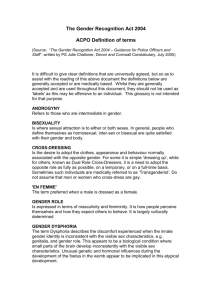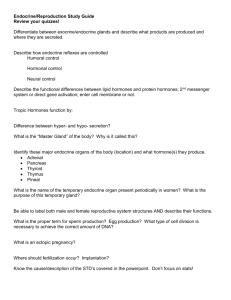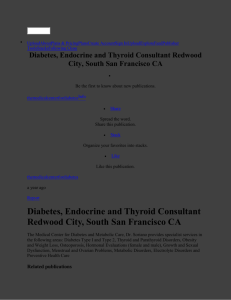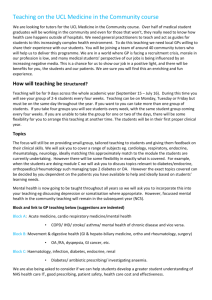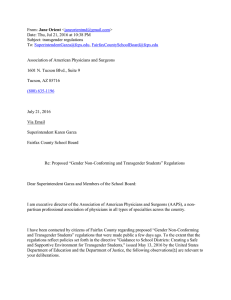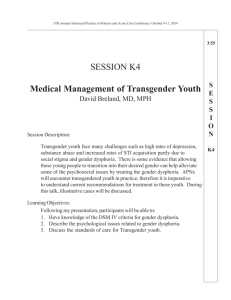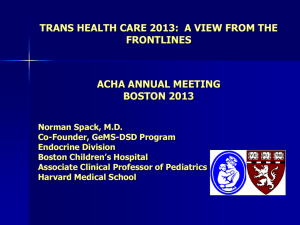Gender Dysphoria or Gender Variant Behavior in
advertisement
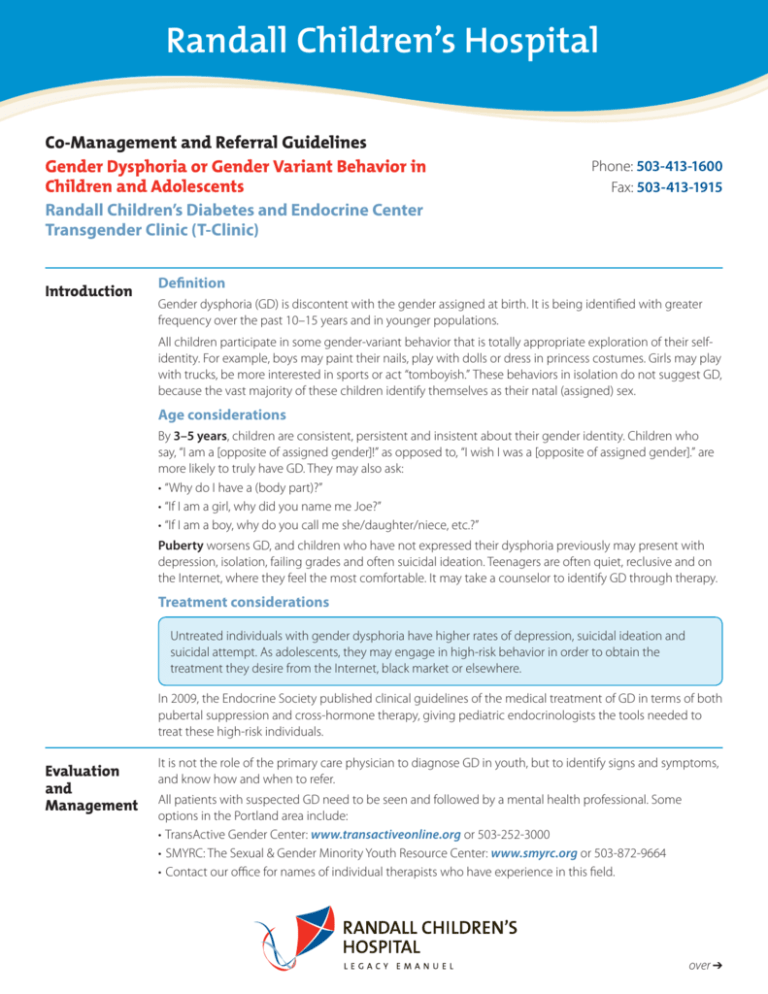
Randall Children’s Hospital Co-Management and Referral Guidelines Gender Dysphoria or Gender Variant Behavior in Children and Adolescents Randall Children’s Diabetes and Endocrine Center Transgender Clinic (T-Clinic) Introduction Phone: 503-413-1600 Fax: 503-413-1915 Definition Gender dysphoria (GD) is discontent with the gender assigned at birth. It is being identified with greater frequency over the past 10–15 years and in younger populations. All children participate in some gender-variant behavior that is totally appropriate exploration of their selfidentity. For example, boys may paint their nails, play with dolls or dress in princess costumes. Girls may play with trucks, be more interested in sports or act “tomboyish.” These behaviors in isolation do not suggest GD, because the vast majority of these children identify themselves as their natal (assigned) sex. Age considerations By 3–5 years, children are consistent, persistent and insistent about their gender identity. Children who say, “I am a [opposite of assigned gender]!” as opposed to, “I wish I was a [opposite of assigned gender].” are more likely to truly have GD. They may also ask: • “Why do I have a (body part)?” • “If I am a girl, why did you name me Joe?” • “If I am a boy, why do you call me she/daughter/niece, etc.?” Puberty worsens GD, and children who have not expressed their dysphoria previously may present with depression, isolation, failing grades and often suicidal ideation. Teenagers are often quiet, reclusive and on the Internet, where they feel the most comfortable. It may take a counselor to identify GD through therapy. Treatment considerations Untreated individuals with gender dysphoria have higher rates of depression, suicidal ideation and suicidal attempt. As adolescents, they may engage in high-risk behavior in order to obtain the treatment they desire from the Internet, black market or elsewhere. In 2009, the Endocrine Society published clinical guidelines of the medical treatment of GD in terms of both pubertal suppression and cross-hormone therapy, giving pediatric endocrinologists the tools needed to treat these high-risk individuals. Evaluation and Management It is not the role of the primary care physician to diagnose GD in youth, but to identify signs and symptoms, and know how and when to refer. All patients with suspected GD need to be seen and followed by a mental health professional. Some options in the Portland area include: • TransActive Gender Center: www.transactiveonline.org or 503-252-3000 • SMYRC: The Sexual & Gender Minority Youth Resource Center: www.smyrc.org or 503-872-9664 • Contact our office for names of individual therapists who have experience in this field. over ➔ Randall Children’s Diabetes and Endocrine Center’s Transgender Clinic (T-Clinic) provides medical management and multidisciplinary care to transgender and gender nonconforming youth. For many patients, pubertal suppression and/or cross-hormone therapy is the ultimate goal of seeking care with us. We discuss the approach to medical therapy and have the families meet the members of our team, even if medical treatment is not imminent. We provide an in-depth look at the diagnosis, repercussions and sideeffects of medical therapy. We have a psychiatric-mental health nurse practitioner (PMHNP) on our team who can follow patients for co-morbid conditions (depression, anxiety, OCD, etc.) and monitor medical therapy. When to refer Any child or adolescent with suspected GD can be referred to the Randall Children’s Diabetes and Endocrine Center T-Clinic. In order to initiate medical therapy, we need a letter from the patient’s mental health professional outlining their diagnosis and progress to date. Please indicate on your referral if you would like the patient to be evaluated by one of our mental health providers. Randall Children’s Diabetes and Endocrine Center Transgender Clinic (T-Clinic) Phone: 503-413-1600 Fax: 503-413-1915 For urgent referrals, call Legacy One Call Consult & Transfer: 1-800-500-9111 to speak with the on-call pediatric endocrinologist. Maya Hunter, M.D. Radhika Purushothaman, M.D. Karin Selva, M.D. David Snyder, M.D. Sevket Yigit, M.D. Laura Edwards-Leeper, Ph.D. Valerie Tobin, PMHNP July 2015 Find this and other co-management/referral guidelines online at www.legacyhealth.org/randallguidelines CHC-4624 ©2015 Referral process


